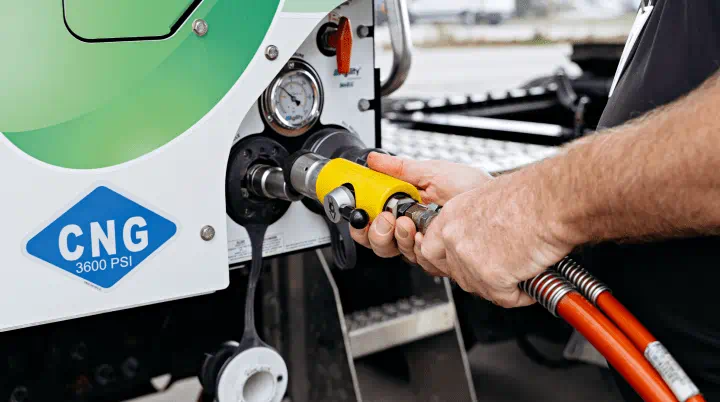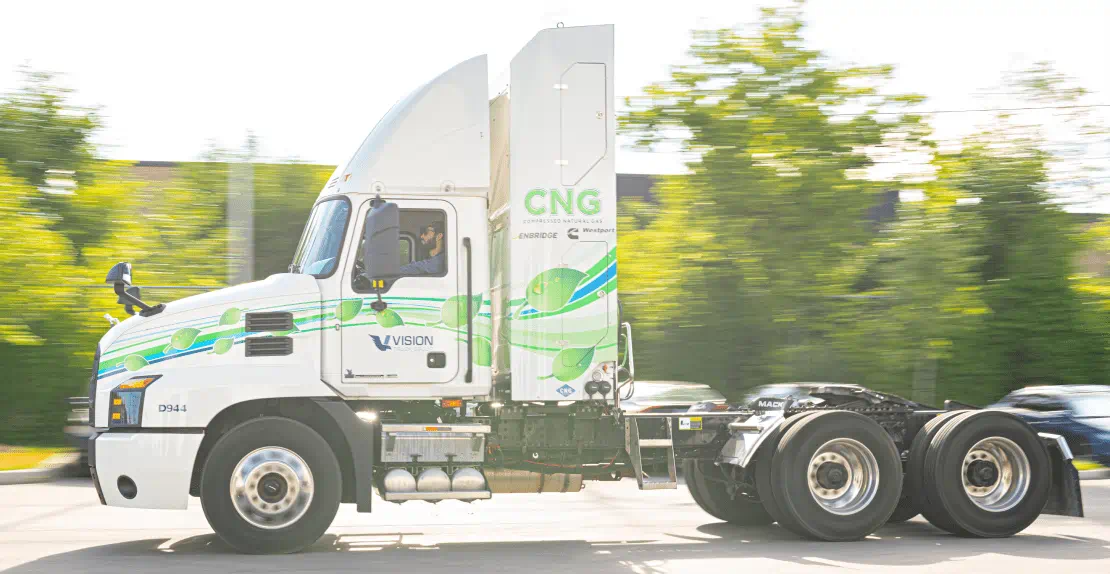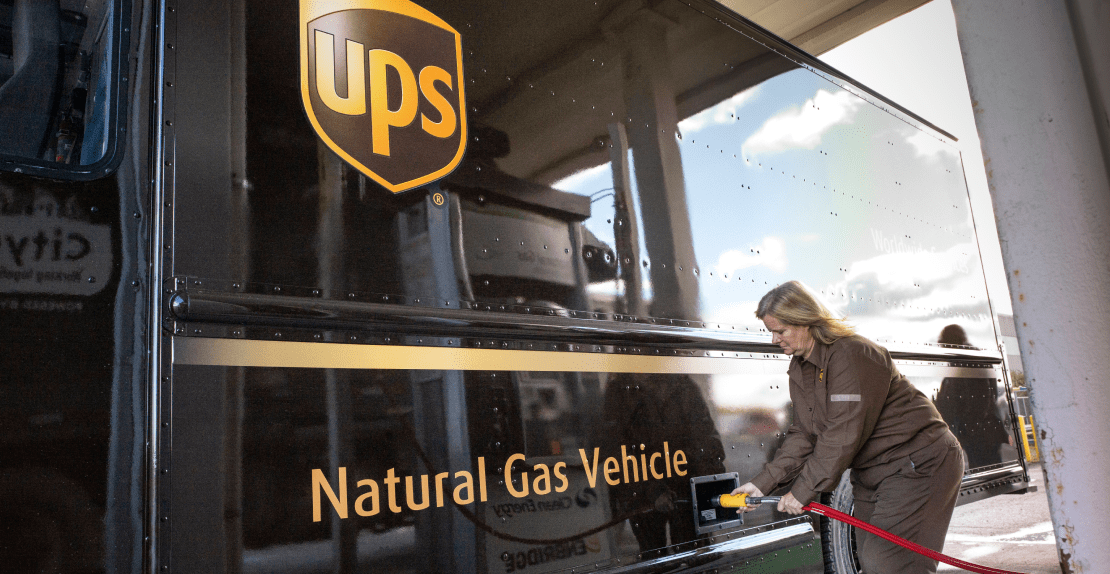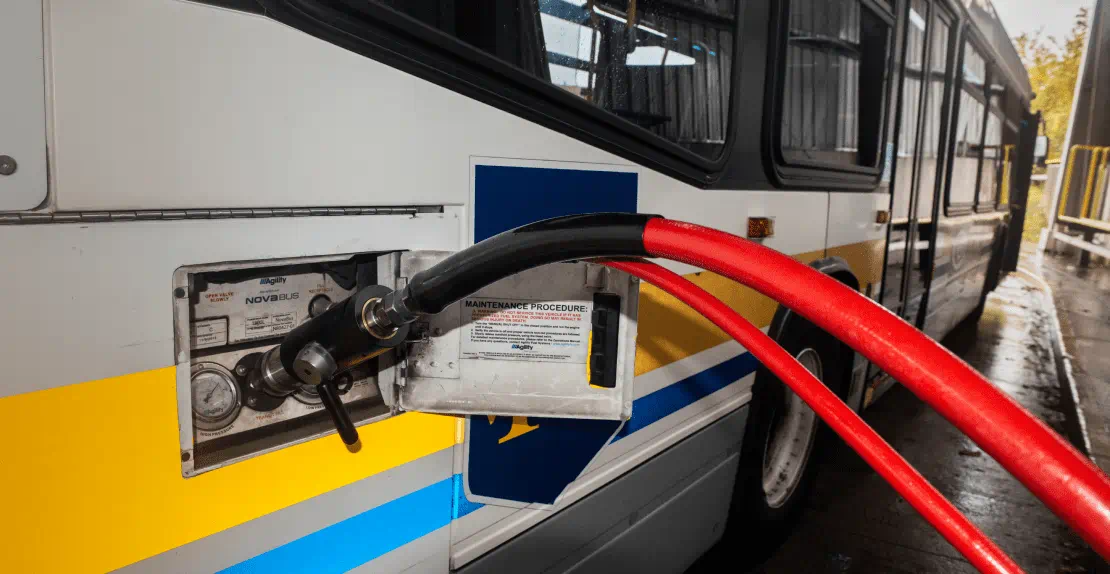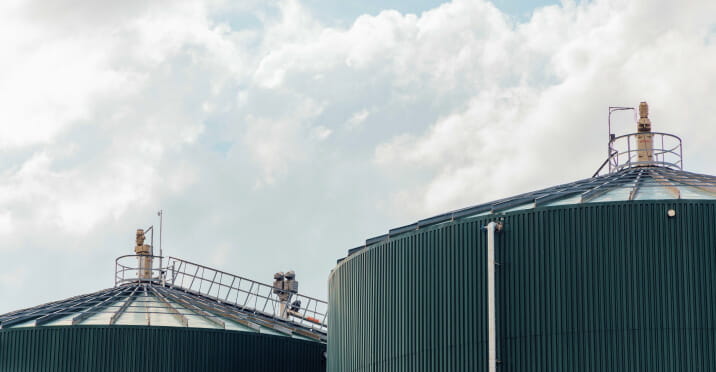Choose CNG to reduce fuel costs
Looking for a viable alternative to diesel fuel or gasoline? Compressed natural gas (CNG) is a market-ready solution that can help reduce emissions and provide a quieter drive. From highway tractors to delivery vehicles, we can help you gradually convert fleets to CNG and reduce fuel costs by as much as 50 percent.








